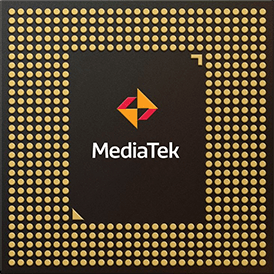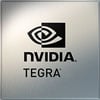
MediaTek Helio P60 Benchmark, Test and specs
Last updated:
The MediaTek Helio P60 has 8 CPU cores and can process 8 threads at the same time. The processor was presented in Q2/2020 and is based on the 3. Generation of the Mediatek Helio series. In the Geekbench 5 benchmark, the MediaTek Helio P60 achieved a result of 286 points (single-core) or 1,364 points (multi-core).

| Name: | MediaTek Helio P60 |
|---|---|
| Family: | Mediatek Helio (37) |
| CPU group: | MediaTek Helio P60/P70 (2) |
| Architecture: | Cortex-A73 / Cortex-A53 |
| Segment: | Mobile |
| Generation: | 3 |
| Predecessor: | -- |
| Successor: | -- |
CPU Cores and Base Frequency
The MediaTek Helio P60 has 8 cores. The clock frequency of the MediaTek Helio P60 is 2.00 GHz. An initial performance assessment can be made using the number of CPU cores.
| CPU Cores / Threads: | 8 / 8 |
|---|---|
| Core architecture: | hybrid (big.LITTLE) |
| A-Core: | 4x Cortex-A73 |
| B-Core: | 4x Cortex-A53 |
| Hyperthreading / SMT: | No |
|---|---|
| Overclocking: | No |
| A-Core Frequency: | 2.00 GHz |
| B-Core Frequency: | 2.00 GHz |
Internal Graphics
The MediaTek Helio P60 has an integrated graphics that the system can use to efficiently play back videos. The MediaTek Helio P60 has the ARM Mali-G72 MP3 installed, which has 3 streaming multiprocessors (48 shaders).
| GPU name: | ARM Mali-G72 MP3 |
|---|---|
| GPU frequency: | 0.80 GHz |
| GPU (Turbo): | No turbo |
| Compute units: | 3 |
| Shader: | 48 |
| Hardware Raytracing: | No |
| Release date: | Q3/2017 |
| Max. displays: | 1 |
|---|---|
| Generation: | Bifrost 2 |
| Direct X: | 12 |
| Technology: | 16 nm |
| Max. GPU Memory: | 2 GB |
| Frame Generation: | No |
Hardware codec support
Processors with integrated graphics can process video codecs faster. Support for modern codecs can significantly increase system efficiency during video playback.
| h265 / HEVC (8 bit): | Decode / Encode |
|---|---|
| h265 / HEVC (10 bit): | Decode / Encode |
| h264: | Decode / Encode |
| VP8: | Decode / Encode |
| VP9: | Decode / Encode |
| AV1: | No |
|---|---|
| AVC: | Decode / Encode |
| VC-1: | Decode / Encode |
| JPEG: | Decode / Encode |
Memory & PCIeThe MediaTek Helio P60 supports a maximum of 8 GB memory. Depending on the mainboard, the processor can use a maximum of 4 (Quad Channel) memory channels. This results in a maximum bandwidth of the main memory of 14.4 GB/s. |
|
| Memory type: | Memory bandwidth: |
|---|---|
| LPDDR4X-1800 | 14.4 GB/s |
| Max. Memory: | 8 GB |
| Memory channels: | 4 (Quad Channel) |
| ECC: | No |
| PCIe: | |
| PCIe Bandwidth: | -- |
Thermal ManagementThe MediaTek Helio P60 has a TDP of . Based on the TDP, the system manufacturer can and must adapt the cooling solution to the processor. |
|
|---|---|
| TDP (PL1 / PBP): | |
| TDP (PL2): | -- |
| TDP up: | -- |
| TDP down: | -- |
| Tjunction max.: | -- |
Technical details
Modern production reduces the waste heat of a processor and increases its efficiency. The MediaTek Helio P60 is made in 12 nm and has 0.00 MB cache.
| Technology: | 12 nm |
|---|---|
| Chip design: | Chiplet |
| Socket: | -- |
| L2-Cache: | -- |
| L3-Cache: | -- |
| AES-NI: | No |
| Operating systems: | Android |
| Virtualization: | None |
|---|---|
| Instruction set (ISA): | Armv8-A (64 bit) |
| ISA extensions: | -- |
| Release date: | Q2/2020 |
| Release price: | -- |
| Part Number: | MT6769T |
| Documents: | Technical data sheet |
Rate this processor
Benchmark results

The benchmark results for the MediaTek Helio P60 have been carefully checked by us. We only publish benchmark results that have been created by us or that have been submitted by a visitor and then checked by a team member. All results are based on and fullfill our benchmark guidelines.
Screenshots:
Screenshots:
Geekbench 5, 64bit (Single-Core)
Geekbench 5 is a cross plattform benchmark that heavily uses the systems memory. A fast memory will push the result a lot. The single-core test only uses one CPU core, the amount of cores or hyperthreading ability doesn't count.

|
AMD Athlon II X3 405e
3C 3T @ 2.30 GHz |
||

|
Qualcomm Snapdragon 617
8C 8T @ 1.50 GHz |
||

|
Qualcomm Snapdragon 653
8C 8T @ 1.95 GHz |
||
|
|
MediaTek Helio P60
8C 8T @ 2.00 GHz |
||

|
AMD A8-7150B
4C 4T @ 3.20 GHz |
||

|
Intel Atom x6212RE
2C 2T @ 1.20 GHz |
||

|
Intel Celeron E1600
2C 2T @ 2.40 GHz |
||
Geekbench 5, 64bit (Multi-Core)
Geekbench 5 is a cross plattform benchmark that heavily uses the systems memory. A fast memory will push the result a lot. The multi-core test involves all CPU cores and taks a big advantage of hyperthreading.

|
Qualcomm Snapdragon 636
8C 8T @ 1.80 GHz |
||

|
Intel Core i5-670
2C 4T @ 3.46 GHz |
||

|
Intel Core i5-3210M
2C 4T @ 3.10 GHz |
||
|
|
MediaTek Helio P60
8C 8T @ 2.00 GHz |
||

|
Intel Core i5-6300U
2C 4T @ 2.60 GHz |
||

|
Intel Core 2 Quad Q9450
4C 4T @ 2.66 GHz |
||

|
AMD Phenom II X4 960T
4C 4T @ 3.40 GHz |
||
Geekbench 6 (Single-Core)
Geekbench 6 is a benchmark for modern computers, notebooks and smartphones. What is new is an optimized utilization of newer CPU architectures, e.g. based on the big.LITTLE concept and combining CPU cores of different sizes. The single-core benchmark only evaluates the performance of the fastest CPU core, the number of CPU cores in a processor is irrelevant here.

|
Intel Pentium 3558U
2C 2T @ 1.70 GHz |
||

|
Intel Celeron 1000M
2C 2T @ 1.80 GHz |
||

|
MediaTek Kompanio 500
8C 8T @ 2.00 GHz |
||
|
|
MediaTek Helio P60
8C 8T @ 2.00 GHz |
||

|
NVIDIA Tegra X1
8C 8T @ 2.00 GHz |
||

|
Intel Celeron J3355E
2C 2T @ 2.50 GHz |
||

|
Qualcomm Snapdragon 617
8C 8T @ 1.50 GHz |
||
Geekbench 6 (Multi-Core)
Geekbench 6 is a benchmark for modern computers, notebooks and smartphones. What is new is an optimized utilization of newer CPU architectures, e.g. based on the big.LITTLE concept and combining CPU cores of different sizes. The multi-core benchmark evaluates the performance of all of the processor's CPU cores. Virtual thread improvements such as AMD SMT or Intel's Hyper-Threading have a positive impact on the benchmark result.

|
Intel Core i5-2390T
2C 4T @ 2.70 GHz |
||

|
Qualcomm Snapdragon 662
8C 8T @ 2.00 GHz |
||

|
Qualcomm Snapdragon 665
8C 8T @ 2.00 GHz |
||
|
|
MediaTek Helio P60
8C 8T @ 2.00 GHz |
||

|
Intel Pentium G3420
2C 2T @ 3.20 GHz |
||

|
Intel Celeron G4920
2C 2T @ 3.20 GHz |
||

|
Intel Core i3-2125
2C 4T @ 3.30 GHz |
||
iGPU - FP32 Performance (Single-precision GFLOPS)
The theoretical computing performance of the internal graphics unit of the processor with simple accuracy (32 bit) in GFLOPS. GFLOPS indicates how many billion floating point operations the iGPU can perform per second.

|
AMD E1-6010
AMD Radeon R2 (Beema) @ 0.35 GHz |
||

|
MediaTek Helio X10
PowerVR G6200 @ 0.70 GHz |
||

|
MediaTek MT8173
PowerVR GX6250 @ 0.70 GHz |
||
|
|
MediaTek Helio P60
ARM Mali-G72 MP3 @ 0.80 GHz |
||

|
MediaTek MT8183
ARM Mali-G72 MP3 @ 0.80 GHz |
||

|
MediaTek Kompanio 500
ARM Mali-G72 MP3 @ 0.80 GHz |
||
|
|
HiSilicon Kirin 935
ARM Mali-T628 MP4 @ 0.68 GHz |
||
AnTuTu 9 Benchmark
The AnTuTu 9 benchmark is very well suited to measuring the performance of a smartphone. AnTuTu 9 is quite heavy on 3D graphics and can now also use the "Metal" graphics interface. In AnTuTu, memory and UX (user experience) are also tested by simulating browser and app usage. AnTuTu version 9 can compare any ARM CPU running on Android or iOS. Devices may not be directly comparable when benchmarked on different operating systems.
In the AnTuTu 9 benchmark, the single-core performance of a processor is only slightly weighted. The rating is made up of the multi-core performance of the processor, the speed of the working memory, and the performance of the internal graphics.
In the AnTuTu 9 benchmark, the single-core performance of a processor is only slightly weighted. The rating is made up of the multi-core performance of the processor, the speed of the working memory, and the performance of the internal graphics.
|
|
HiSilicon Kirin 710
8C 8T @ 2.20 GHz |
||

|
Qualcomm Snapdragon 662
8C 8T @ 2.00 GHz |
||

|
MediaTek Helio P70
8C 8T @ 2.10 GHz |
||
|
|
MediaTek Helio P60
8C 8T @ 2.00 GHz |
||
|
|
HiSilicon Kirin 710A
8C 8T @ 2.00 GHz |
||

|
Qualcomm Snapdragon 665
8C 8T @ 2.00 GHz |
||

|
Qualcomm Snapdragon 460
8C 8T @ 1.80 GHz |
||
AnTuTu 8 Benchmark
The AnTuTu 8 Benchmark measures the performance of a SoC. AnTuTu benchmarks the CPU, GPU, Memory as well as the UX (User Experience) by simulating browser and app usage. AnTuTu can benchmark any ARM CPU that runs under Android or iOS. Devices may not be directly compareable if the benchmark has been performed under different operating systems.
In the AnTuTu 8 benchmark, the single-core performance of a processor is only slightly weighted. The evaluation consists of the multi-core performance of the processor, the speed of the RAM and the performance of the internal graphics.
In the AnTuTu 8 benchmark, the single-core performance of a processor is only slightly weighted. The evaluation consists of the multi-core performance of the processor, the speed of the RAM and the performance of the internal graphics.

|
Apple A9
2C 2T @ 1.85 GHz |
||

|
Qualcomm Snapdragon 665
8C 8T @ 2.00 GHz |
||

|
Samsung Exynos 9610
8C 8T @ 2.30 GHz |
||
|
|
MediaTek Helio P60
8C 8T @ 2.00 GHz |
||
|
|
HiSilicon Kirin 710A
8C 8T @ 2.00 GHz |
||

|
MediaTek Helio P65
8C 8T @ 2.00 GHz |
||

|
Qualcomm Snapdragon 660
8C 8T @ 2.20 GHz |
||
Estimated results for PassMark CPU Mark
Some of the CPUs listed below have been benchmarked by CPU-monkey. However the majority of CPUs have not been tested and the results have been estimated by a CPU-monkey’s secret proprietary formula. As such they do not accurately reflect the actual Passmark CPU mark values and are not endorsed by PassMark Software Pty Ltd.

|
AMD A8-3510MX
4C 4T @ 2.50 GHz |
||

|
Intel Core i5-4350U
2C 4T @ 2.90 GHz |
||

|
Intel Core i7-2620M
2C 4T @ 2.70 GHz |
||
|
|
MediaTek Helio P60
8C 8T @ 2.00 GHz |
||

|
Intel Pentium J4205
4C 4T @ 2.40 GHz |
||

|
Intel Core i3-3250
2C 4T @ 3.50 GHz |
||

|
Intel Celeron G4900
2C 2T @ 3.10 GHz |
||
Benchmarks

Geekbench 5 (SC)
2,488 entries
2,488 entries

Geekbench 5 (MC)
2,461 entries
2,461 entries

Geekbench 6 (SC)
1,755 entries
1,755 entries

Geekbench 6 (MC)
1,703 entries
1,703 entries

FP32 SP (iGPU)
2,042 entries
2,042 entries

AnTuTu 9 Benchmark
90 entries
90 entries

AnTuTu 8 Benchmark
118 entries
118 entries

PassMark CPU-Mark
2,392 entries
2,392 entries
Popular comparisons
back to index






